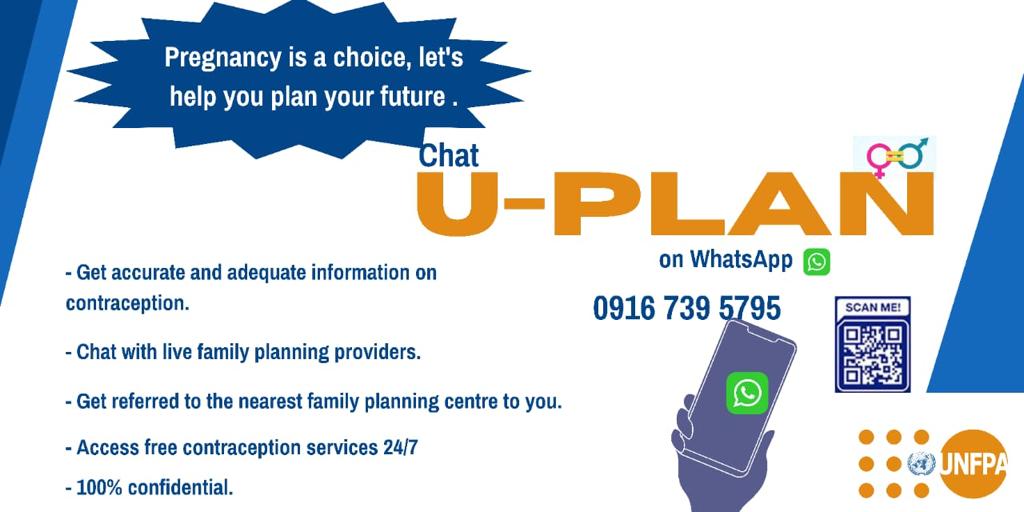Discover the wonders of the human body, from anatomy and development to sexual identity.
Pregnancy is a joyful event🤩, however, if it happens too early or it is unplanned, it can be a problem🙆♀️. An adolescent that gets pregnant may suffer health conditions, setbacks in her education either as a student or an apprentice, reduction in job opportunities etc.🤒
What is Pregnancy?
Pregnancy occurs when the female egg is fertilised by the sperm of the male resulting in the development of one or more babies inside the womb of a female, pregnancy usually lasts for about 40 weeks after which delivery takes place.
What are the early pregnancy signs?
It differs among females but the common ones are:
The best way to confirm pregnancy is to do a pregnancy test.

Unplanned pregnancy
This is a pregnancy that occurs at a time that an individual is not ready for it or does not want it whether they are married or not.
| S/N | Causes of unplanned pregnancy | Prevention of unplanned pregnancy |
| 1 | Improper use of condoms | Sexual abstinence |
| 2 | Having sex without the use of contraceptives | Knowledge and use of contraceptives |
| 3 | Having sex under the influence of drugs and alcohol | Knowledge of sexual rights and health |
| 4 | Poor knowledge of contraceptive methods | Prevention of sexual violence |
| 5 | Rape and other types of sexual violence. | Access to education for females |
| 6 | Implementation of empowerment programs for females |
Abstinence is when an individual chooses not to have sex and this could be for different reasons. It is a safe, effective and free way to prevent pregnancy. Abstinence has benefits. These include:
While practising sexual abstinence…
Unintended pregnancies may occur, hence the need for young people to access the services and protection they need for their health and well-being. Contraceptives are methods, devices📱 or medicines💊 used to prevent unintended pregnancies.
It is important that you have complete and adequate information on the contraceptive types and use so that you can make informed choices. Different contraceptives have different effectiveness rates, efficacy, benefits and side effects.
The use of contraceptives can help people who are sexually active prevent unintended pregnancy or plan if and when they want to have children, with important related benefits for themselves and the society.
Contraceptive methods include:
Factors such as perceived risks, cost and accessibility can help to determine the most appropriate method or mix of contraceptives sexually active partners can use.
Young people who are sexually active can access contraceptives locally from health centres and pharmacies🏥 near them without significant barriers such as age, marital status, gender, gender identity or sexual orientation.
It is also important to know that the responsibility of preventing a pregnancy is not just for the woman but also the responsibility of the man. Both partners must agree if and when they want to get pregnant and on the contraceptive method to use for effectiveness.
Myth: If your partner withdraws before ejaculation, you won’t get pregnant.
Fact: The withdrawal method is not a reliable method of preventing pregnancy. This is because it is possible for sperm to be on the tip of the penis before ejaculation and this can result in a pregnancy.
Myth: I am too young to use a contraceptive method to prevent pregnancy.
Fact: Once a girl or woman starts menstruating, she can get pregnant if she has unprotected sex. To prevent pregnancy, it is safer to abstain from sex, or use a contraceptive method.
Myth: Long-term use of contraception can make it harder to get pregnant later.
Fact: Once women stop using contraception, their menstrual period and ability to get pregnant will usually return to normal. Exceptions include Depo Provera – an injectable which can take up to 12 months for it to leave the body and for your ability to get pregnant to be fully restored.
Myth: Parental consent is required to get a contraceptive method
Fact: Most young people who require contraception are able to obtain it without parental consent.
Myth: Teenagers and women who have not had a child shouldn’t use an IUD or implant because it can hurt their bodies.
Fact: IUDs and contraceptive implants are safe and effective for teenagers and women who have not had a child.
Want to get more information about Contraception – Use U-PLAN Chatbot!!!
The U-PLAN WhatsApp chatbot is designed to provide accurate and adequate information on contraception as well as contraceptive methods to Adolescents, Young people , Persons with Disabilities and all Women of Reproductive Age. Get access to information from the comfort of your home, in utmost confidentiality, with linkages provided to the Service Delivery Points

Nausea: a feeling of illness or discomfort in the digestive system, usually characterised with the urge to vomit.
We use cookies to improve your experience on our site. By using our site, you consent to cookies.
Manage your cookie preferences below:
Essential cookies enable basic functions and are necessary for the proper function of the website.
These cookies are needed for adding comments on this website.
Statistics cookies collect information anonymously. This information helps us understand how visitors use our website.
Google Analytics is a powerful tool that tracks and analyzes website traffic for informed marketing decisions.
Service URL: policies.google.com (opens in a new window)